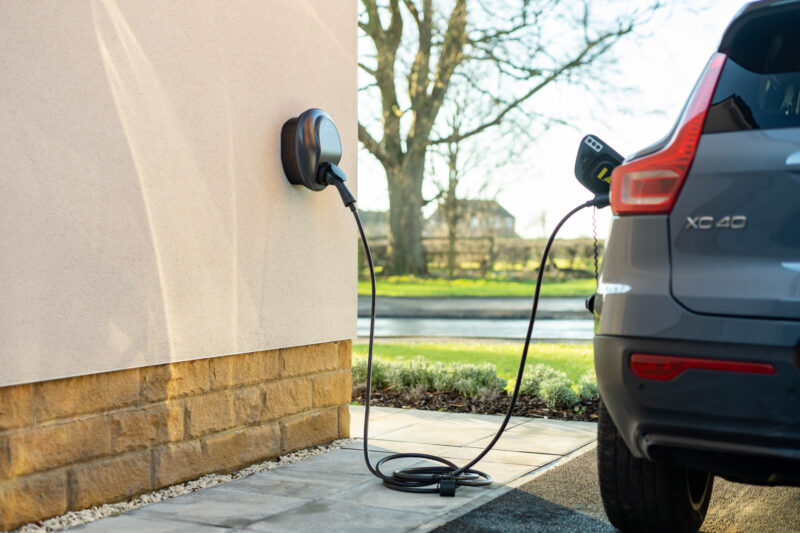As technology evolves, car chargers have become more sophisticated. Here are some advanced features to consider when looking for a high-quality car charger:
1. Smart Charging Technology
Many modern car chargers come equipped with smart charging technology, which automatically detects the device type and delivers the optimal amount of power. This helps prevent overheating and overcharging, increasing the lifespan of both the charger and your device.
2. Integrated Phone Mounts with Wireless Charging
Some wireless car chargers double as phone mounts. These are designed to attach to your car’s dashboard, windshield, or air vent, providing a convenient and safe way to hold your phone while driving. They often come with adjustable grips and rotation options, allowing you to position your phone for hands-free calls or easy viewing of maps.
3. LED Indicators
Many car chargers now include LED indicators, which help you quickly see if the charger is connected and working properly. Some models even have color-coded LEDs to show different charging states—like red for charging and green for fully charged—making it easier to monitor your device’s status without distraction.
4. PD-Compatible USB-C Chargers
USB-C has become the standard for most devices due to its fast charging capabilities and universal design. Chargers that support USB Power Delivery (PD) can supply power at higher wattages, allowing for rapid charging of phones, tablets, laptops, and even some gaming consoles. If you have a newer device, a PD-compatible car charger ensures you’re getting the fastest charge possible.
5. Dash Cam Integration
Some high-tech car chargers are integrated with dash cams, providing both power for your devices and continuous video recording while you drive. This can be a great option for those who want to maintain safety, security, and functionality all in one compact device.
Safety Considerations for Car Chargers
While car chargers are convenient, safety should always come first. Here are some safety tips to ensure proper use:
- Avoid Overloading the Charger: While many chargers offer multiple ports, connecting too many devices at once can cause overheating and affect charging performance. It’s best to charge only what is necessary at any given time.
- Check for Certifications: Ensure that your charger has certifications like CE, FCC, or RoHS, which indicate compliance with safety and environmental standards. Certified chargers are generally more reliable and less likely to cause electrical issues.
- Inspect the Charger Regularly: Check for signs of wear or damage, like frayed wires or loose connectors. A damaged charger can cause shorts, fires, or damage to your devices.
- Avoid Cheap Imitations: While budget-friendly chargers can be tempting, it’s better to invest in a reputable brand known for quality and safety. Cheap or counterfeit chargers may lack essential safety mechanisms, putting your devices and even your vehicle at risk.
Choosing the Right Car Charger for Your Needs
When selecting a car charger, consider these factors:
- Travel Habits: If you take long road trips or drive frequently, a high-output charger with multiple ports will be beneficial, especially if you’re traveling with others.
- Device Types: If you own multiple types of devices, a charger with both USB-A and USB-C ports will offer more versatility.
- Mounting Needs: For those who use navigation frequently, a charger with a built-in mount or a dedicated wireless mount can improve driving safety and convenience.
- Budget: While high-end chargers offer more features, there are many affordable options that provide basic and reliable charging capabilities.
How to Maintain Your Car Charger
To maximize the lifespan of your car charger and ensure consistent performance, follow these maintenance tips:
- Avoid Prolonged Exposure to Sunlight: Extreme heat can damage the charger and reduce its efficiency. If your car charger is mounted in a place with direct sunlight, consider moving it to a shaded spot when not in use.
- Keep the Charging Port Clean: Dust and debris can accumulate in the car’s charging port over time, affecting the connection and performance of the charger. Regularly clean the port using compressed air or a soft brush to maintain optimal performance.
- Unplug When Not in Use: Leaving your charger plugged in constantly can result in slow power drain from your car’s battery, especially in older vehicles. Unplugging it when not needed helps conserve energy and protects the charger from electrical surges.
Future Trends in Car Charging
As electric vehicles (EVs) become more popular, new innovations in car charging technology are on the horizon:
- Integrated EV Charging Ports: With more vehicles coming equipped with built-in USB ports and wireless chargers, car manufacturers are adapting their designs to make charging an integral part of the driving experience.
- Higher Power Outputs: As devices demand faster charging speeds, car chargers are likely to evolve to deliver even higher outputs, possibly exceeding 100W for larger devices like laptops.
- Smart Charging Integration: AI-driven chargers could become more common, adjusting power delivery based on device usage patterns or syncing with smart home systems for enhanced functionality.
- Solar-Powered Enhancements: As renewable energy sources become more widespread, expect to see more efficient solar-powered car chargers that can effectively charge devices even in less-than-ideal conditions.
Conclusion
A car charger is not just a handy accessory—it’s an essential part of modern driving. As technology advances, these devices are becoming smarter, faster, and more adaptable. By choosing the right charger for your needs and taking safety and maintenance precautions, you can ensure a seamless and connected driving experience. Whether you’re commuting to work, embarking on a road trip, or navigating a new city, a good car charger keeps you powered and prepared, wherever the road takes you.







